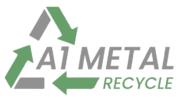As copper scrap prices continue to climb and demand for recyclable materials grows, selling copper scrap in Sydney can be a profitable venture. However, before loading up your ute and heading to the nearest scrap yard, it’s important to understand the legal landscape surrounding copper scrap sales in New South Wales (NSW).
Australia has strict laws around scrap metal, particularly copper, due to its high value and its attractiveness to thieves. In NSW, the sale and purchase of scrap copper is tightly regulated to prevent metal theft and ensure transactions are traceable and legitimate.
In this blog post, we’ll explore the legal side of selling copper scrap in Sydney, including licensing requirements, seller identification, payment rules, and penalties for non-compliance.
Why Copper Is Heavily Regulated
Copper is a highly sought-after metal due to its excellent conductivity and widespread use in construction, telecommunications, and electronics. Unfortunately, its value has also made it a prime target for theft. Over the years, there have been numerous reports of stolen copper from construction sites, railway lines, and public infrastructure.
To combat this issue, NSW implemented reforms to the scrap metal industry that make it harder to sell stolen metals, especially copper.
Overview of Scrap Metal Laws in NSW
The Key Law: Scrap Metal Industry Act 2016 (NSW)
This Act governs the operation of scrap metal businesses in NSW. Its aim is to regulate transactions, promote lawful trading, and deter metal theft. The Act covers anyone involved in buying, selling, collecting, storing, or disposing of scrap metal, including individuals selling copper scrap.
Some of the key obligations under this law include:
- Mandatory registration for scrap metal dealers
- Verified identification from sellers
- Non-cash payment requirements
- Detailed recordkeeping by scrap yards
Let’s look at how this applies to individuals selling copper.
Legal Requirements for Sellers of Copper Scrap
1. Provide Valid Identification
When selling copper scrap in NSW, you must present valid identification — typically a government-issued photo ID such as:
- Driver’s licence
- Passport
- NSW photo card
The scrap yard is legally required to record your details, including your name, address, and ID number. This information is kept on file in case it’s needed by police for investigations into stolen metals.
Important: Failing to provide valid ID means the scrap dealer cannot legally complete the transaction.
2. No Cash Payments Allowed
One of the most significant legal changes is the ban on cash payments for scrap metal sales, including copper. Under NSW law, scrap dealers must pay sellers via:
- Bank transfer
- Cheque
This rule was introduced to improve transparency and traceability. It makes it harder to sell stolen goods anonymously and ensures there’s a clear paper trail.
Tip: Make sure your bank details are correct and that your name matches the ID you provide.
3. Seller Must Have Lawful Possession of the Copper
You must be able to demonstrate that the copper scrap you’re selling is legitimately owned by you. If the material looks suspicious — such as being in unusually good condition, or coming from infrastructure like cables or pipes — scrap dealers are required to alert authorities.
Some examples of legal sources of copper scrap:
- Renovation or demolition waste (from your own property)
- Old plumbing or electrical wiring
- Offcuts from legal trade work (licensed tradies)
Red Flag Materials
Scrap yards are on alert for materials that may have been stolen. Be prepared to answer questions if you’re bringing in:
- Electrical cable with markings from utility companies
- Large quantities of copper without a clear origin
- Items that appear newly removed from infrastructure
Legal Obligations for Scrap Yards (That Affect Sellers)
Scrap dealers in NSW must:
- Be registered with NSW Fair Trading
- Record every transaction, including the seller’s ID, description of the metal, weight, and payment method
- Retain records for at least 3 years
- Refuse to accept metal from unverified sources
If you try to sell copper to an unlicensed or non-compliant scrap dealer, you may be putting yourself at legal risk. Always deal with a registered yard.
You can check if a business is registered via the NSW Fair Trading license check.
What Are the Penalties for Breaking the Law?
The penalties for failing to comply with the Scrap Metal Industry Act can be significant.
For Sellers:
- Fines for supplying false or no identification
- Confiscation of suspected stolen metal
- Police investigation and possible charges if found to be in possession of stolen goods
For Scrap Dealers:
- Fines up to $11,000 for individuals and $22,000 for businesses for cash transactions
- Loss of license
- Criminal charges in serious cases
Tips for Selling Copper Scrap Legally in Sydney
- Keep receipts or documentation if the copper came from a renovation or legal job.
- Always bring valid ID when visiting a scrap dealer.
- Use only licensed scrap yards that follow NSW regulations.
- Be transparent about the source of your scrap.
- Avoid accepting or selling materials from questionable sources.
Conclusion
Selling copper scrap in Sydney can be a legitimate way to make money — especially for tradespeople or property owners with leftover materials. But with strict laws in place to prevent theft and illegal dumping, it’s vital that you understand your legal responsibilities.
By following the correct processes, using licensed dealers, and ensuring transparency, you can sell your copper scrap safely and lawfully.
If you’re ever unsure about whether your materials are legal to sell, speak to a reputable scrap metal dealer in Sydney for advice.



